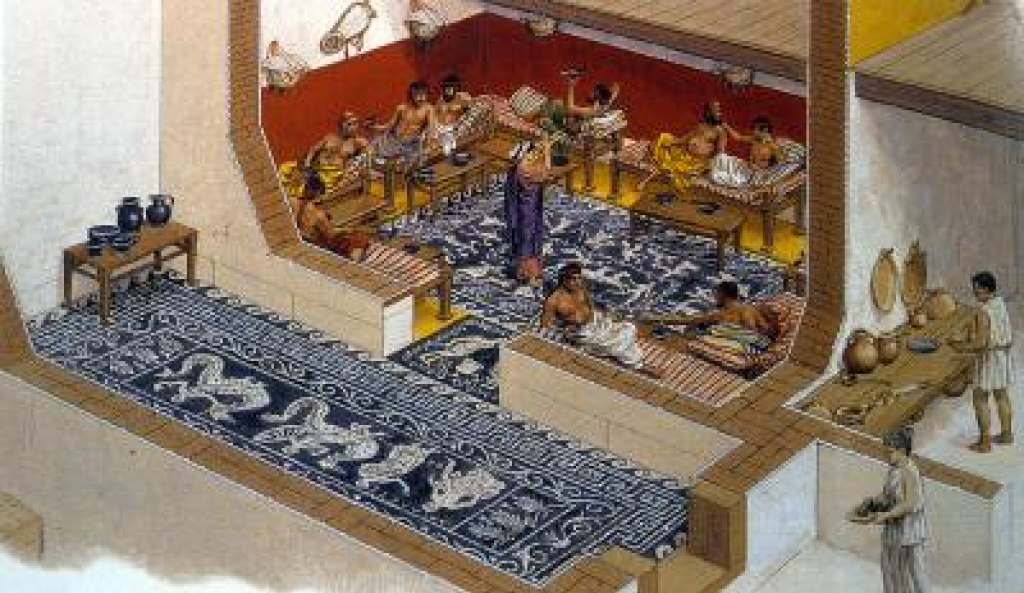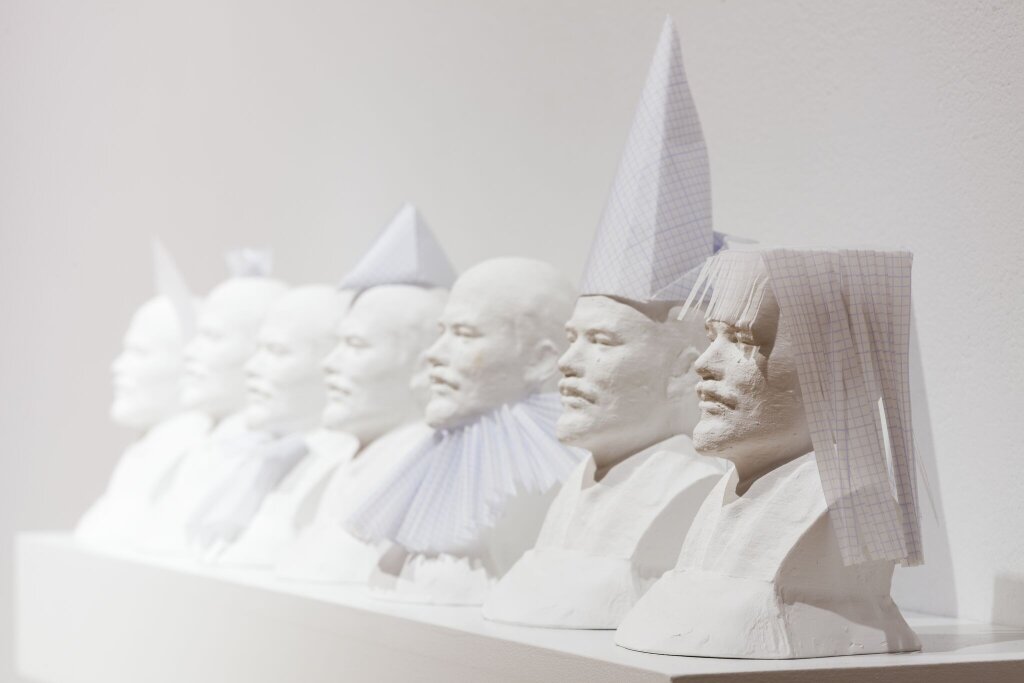Plato is an example of someone who's done an amazing job, and is being recognized more and more.
Part I in Our Series, “The Value of a Liberal Arts Degree”
Excerpted from Plato’s Republic, Freedomworks edition*
The MBAs who won the College’s admissions contract asked the deans of the faculties to leave the room and reclined on their chairs in their starched robes. It was time to refine the model of admissions for the 405-404 BCE cycle. They had agreed that the applicant who loves Dostoyevsky is but a microcosm of the entire problem of a liberal arts education. All eyes were on Socrates, PhD in Business Management. Socrates’s eyes were on the lamb doused in grape juice and the olives in brine that would soon saturate his beard.
Plato: We were considering this applicant who we agree is virtuous and wishes to study Russian literature. He is interested in wisdom and we can find no reason not to admit him.
All look down uncomfortably except Socrates: Tell me, Plato, what do you think is the purpose of a liberal arts education?
Plato, smelling another syllogistic trap, turns Socratic: Why, Socrates, do you ask?
Socrates: It is said that a liberal arts degree is to enhance knowledge and teach critical thinking and therefore wisdom. Do you agree?
Plato: It is so!
Socrates: And how, Plato, do you define critical thinking?
Plato: Critical thinking is to never accept without inquisition that which has been received.
Socrates: And has it been received that greater knowledge and critical thinking are good?
Plato: Why, yes, master.
Socrates: And is it virtuous to accept the goodness of critical thinking and greater knowledge without question?
Plato: It follows that it is not virtuous.
Socrates: Then we would do better to seek the purpose of a liberal arts education elsewhere.
Approving murmurs: He speaks truly.
It is lunch time. The symposium plunges into the food, literally, and sleeps off the afternoon heat, fanned by the graduates in comparative barbarian literature and Egyptian art. The deans in the reception area are offered bottled water in fizzy and flat.
The group reconvenes in the late afternoon.
Socrates: We have proven, then, that the purpose of a liberal arts education cannot lie in critical thinking and knowledge. I propose that it lies in the maximization of pleasure and in the minimization of displeasure. We shall call this rational choice.
All: Let us.
Socrates: And no matter how the pleasure is defined, it requires many inputs to be achieved and we cannot ponder the essence of a liberal arts education until we have divined the means to pay for it. We need to hire more MBAs to make it a reality. We need to pay contractors like ourselves and we are many. We have earned a certain level of comfort because we reward talent and excellence: we require baby lambs and wine and olives and fresh fruit and we must pay for our homes in the suitable neighborhoods of Athens. We may also add repose in the suburbs. Then let us not forget that we need to acquire desks and tablets for our customer-students, we require roofs and walls to protect our enterprise from the elements and the hoi polloi and the inquiring minds among the faculty who would misunderstand the work that we do.
All: It is so.
Socrates: So it is vital that we produce more MBAs and acquire more gold and silver and bronze to pay them. It follows then that the value of a liberal arts education is equal to the value of the gold, silver, and bronze necessary to pay for a liberal arts education. Of these gold is the most valuable. Hence a liberal arts education is the same as its cost I gold.
Plato, excitement rising: Verily.
Socrates: And the students more likely to submit to heavy debt and risk enslavement to the banks are those most likely to be rewarded opulently for their efforts upon graduation. And they in turn will contribute to the alumni fund whereas the Russian major will be sweeping pottery shards at the local inn. We shall call the profit-maximizing student gold, whereas the social scientist is silver and the humanist bronze in accordance with the amount of liberal arts they can purchase. Truly the latter two have behaved irrationally. For if they do not seek income maximization they cannot pay for a liberal arts education there can be no liberal arts.
All, excitedly: We see your reasoning and it is sound.
Socrates: So it makes sense to admit only those interested in making money, the golds, whereas the file we are pondering of a hapless boy interested in Russian literature represents displeasure because he is burdensome and cannot support the needs of a liberal arts education. He seeks displeasure because he does not seek to make money.
All, robes rustling: It seems to follow.
Socrates: Then I think we have arrived at a solution to our problem. The purpose of a liberal arts education is to produce those who will pay for a liberal arts education now and in the future; our would-be Russian major must join the would-be majors in philosophy and history and Etruscan art in the rejection pile because they seek displeasure and they are irrational; and we can truthfully say that we are responding to the realities of the free agora and student demand.
Alcibiades, now fully erect and smiling broadly: But that is demagogy!
Socrates: To name it such is not to make it any more or less virtuous because the virtue emerges from the essence of the matter, which is the value of a liberal arts education measured in gold. The Russian major is hostile to a liberal arts education because he is not interested in gold. His interest in Dostoyevsky is the same as destroying the liberal arts, whereas we endeavor to save them. By his essence he demands to be rejected.
All ejaculate simultaneously: Master, you have proven it!
Socrates: Then it is settled. We shall invite the deans back into the room and explain that the Peloponnesian Wars have created new circumstances and a need for new courses that better respond to student demand in evolving agora conditions. It is best that they announce it to world because they are deans and scholars and they are the deciders. We are merely Optimality Consultants.
All, guffawing: That is all we are!
Socrates: But first let us imbibe this wine in moderation and enjoy this broiled mullet in fig sauce followed by boiled barley in honey. Send out to the deans individually wrapped Nabisco cookies and Keurig pods with a choice of Swiss Vanilla or Hazelnut flavors. It valorizes them.
To be continued in Book V: Data Systems Analysts Must Be Kings.
*Plato is His Impactfulness, Yanni Kotsonis



